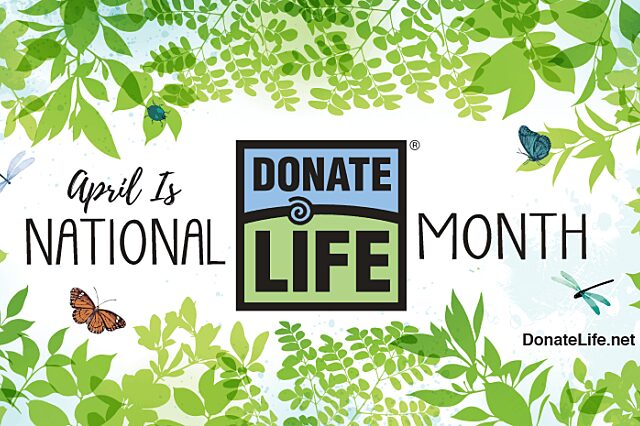Facts and Benefits of Organ Donation
Today, there are over 110,000 people nationwide on the organ transplant waiting list hoping for a life-extending donation.

Today, there are over 110,000 people nationwide on the organ transplant waiting list hoping for a life-extending donation. Unfortunately, 8,000 people on this list die each year waiting for an organ. Despite 40,000 lifesaving transplants last year, there is still a significant shortage of donors. To help bridge this gap in supply and demand, Donate Life America has designated April as National Donate Life Month.
The month is devoted to raising awareness about organ donation and encouraging people to register.
Kenneth Andreoni, M.D., chief of the UF College of Medicine’s division of transplantation surgery, has witnessed an increase in the age and comorbidities of donors, as well as the complexity of comorbidities of the recipient patients the program treats.
Misconception plays a major role in people’s choice to register for organ donation, and National Donate Life Month helps to clear up these myths. Right now, despite 95% of adults in the United States supporting organ donation, only 58% are registered donors. There needs to be a drastic shift in perception of organ donation to fix this problem, and that starts with education.
“It’s important for people not to assume that they can’t be a donor for a variety of reasons,” Andreoni said. “Most people can donate something, whether it’s an organ or tissue, which can save dozens and dozens of lives down the road.”
Luckily, registering as an organ donor has never been easier. Many states allow people to register upon getting their driver’s license, making the information easily accessible moving forward. In addition to helping the lives of strangers in need, this decision can also aid loved ones in the event of an accident.
“It’s wonderful that with the current laws around the country, and especially in Florida, that you can simply show your willingness to donate on your driver’s license,” Andreoni said. “That’s an active step made by the person, which is extremely simple and kind to family members because you’re not burdening them with that decision. It’s a lot smoother for the family to know that their loved one wanted to donate.”
After this impactful decision is made, it goes a long way. One donor alone can save or drastically improve the lives of eight or more people, and donations don’t always have to occur postmortem. Living donation serves as a viable option, especially in cases of kidney and liver transplantation, and saves the life of both the recipient and the next person on the waiting list.
“A large number of transplant patients do extremely well, improving the quality and timespan of their life,” Andreoni said. “It also drastically increases the productivity of their life, meaning they can be employed again and be involved with their family’s lives again, which is of value hard to measure.”
National Donate Life Month helps tie all the facts and benefits of organ donation together, and serves as an important stepping stone to solving the issue of donor shortages. Learn more about how to register to be an organ donor and about the UF College of Medicine division of transplantation surgery.
About the author
